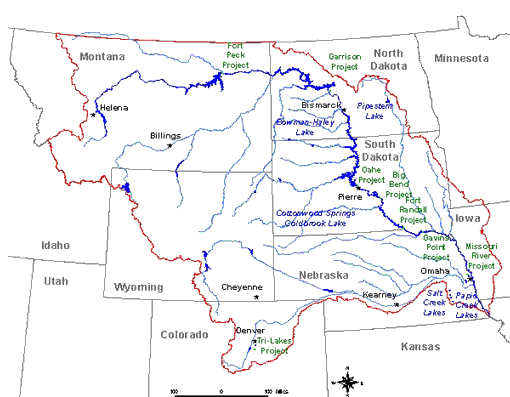Environment & Energy
Related: About this forumWashU Hydrogeologist - Barge Industry "Living In An Imaginary World" Of Susbsidies & Support
EDIT
A hydrogeologist at Washington University in St. Louis, who has watched and brooded over the nearby river for 18 years sees it quite differently. “It was a trumped up crisis,” says Robert W. Criss, PhD, a professor of earth and planetary sciences at WUSTL, “and I am offended by the way the news media has puffed it.”
“We’ve got to start to recognize the realities of how rivers work,” Criss says. The shipping industry wants to maintain a nine-foot depth so that barges carrying fossil fuels, grain and gravel can move down the river all year round. But, says Criss, rivers are low in this part of the world at this time of year. In the normal annual cycle, the water recedes in the dry months of the fall, tapers off in the winter and then in the spring, the river floods.
He also points out that the Missouri River, which empties into the Mississippi north of St. Louis and accounts for 45 percent of the annual flow of the river as it passes St. Louis, has a huge catchment (it rises in western Montana) but one that receives very little rainfall. Most of the watershed gets less than 20 inches of precipitation a year, about as much as Iraq.
“We’ve got to stop subsidizing anachronistic industries like the barge industry,” he says. “The barge companies would be out of business in a hot minute,” Criss says, “if they had to maintain their own river channel and pay to use locks.”
EDIT
http://news.wustl.edu/news/Pages/24851.aspx
Kolesar
(31,182 posts)The snow does not melt until it is quite warm in June, then that water is quite delayed because it travels hundreds of miles before it reaches the "navigable" part of the river near Omaha. The upper reaches of the river don't even have barge traffic because of all the dams they built in the post WW2 period like Fort Peck reservoir and Lake Oahe.

The coal industry gets a huge subsidy in the form of maintenance for USCOE dams on the Kanawah River and other Ohio River valley projects. By contrast, shippers on the Great Lakes get no subsidy to ship out the Welland Canal or the Seaway that lets our traffic into the ocean.
caraher
(6,278 posts)I don't know, I'm just asking. It surely costs something to operate the Soo Locks and Welland Canal, though probably nowhere near the cost to keep the Mississippi at the desired depth year-round...
Kolesar
(31,182 posts)...plus operations and maintenance, for that matter. Soo Locks on the American side are free.
bluedigger
(17,086 posts)Improving and maintaining means of transport and communication has been one of the main functions of the nation state since it's development, and is generally considered to be in the interest of the common people. It's fair to argue over whether or not the support is equitable or favors one group disproportionately, of course.
GliderGuider
(21,088 posts)Kolesar
(31,182 posts)In all fairness, the federal government does occasionally spend money to add capacity and grade level separations in locations where railroad lines are heavily congested. The public is paying to untangle a mess near Chicago right now.
19th century railroads were way subsidized by the federal government. They earned huge right of ways just for providing service to the frontier lands in the plains states.
bluedigger
(17,086 posts)most of those property taxes are on land the government gave them. I'm not very informed on modern rail economy, but I'm pretty sure that if they have lobbyists, they're getting something. ![]()
Ed Suspicious
(8,879 posts)their own roads...